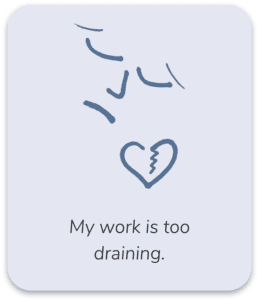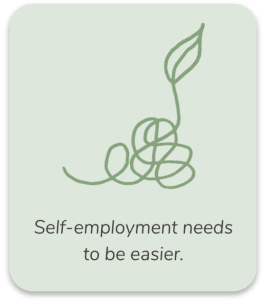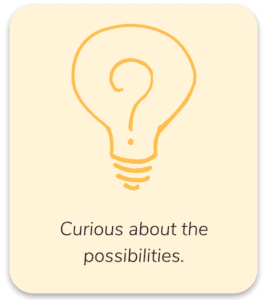Introverts and highly sensitive people (HSP) have had a lot of online attention over recent years, and yet the terms are still so misunderstood, in harmful ways. Let’s get some real definitions, reliable assessments, and clear up myths.

Are you an introvert, highly sensitive person (HSP), extrovert, sensitive introvert, and does it even matter?
Some people worry about being limited by a label. I hate being put in a box, so I get it.
To me, these traits are not a box and should not be interpreted like that. You are still unique and deserve to be treated with respect, as you are.
This is something liberating to know about yourself, the same as knowing if you’re right-handed or left-handed. It can be a relief.
Much of the online attention to these words has been in the form of cute little quizzes or image quotes. Much of it has created more confusion and is not reliable.
That means you could be missing out on the valuable insights that come from a true understanding about introversion and high sensitivity, and the differences. Understanding could help you find more energy, happiness, confidence, and/or career clarity.
On this page:
- Video Overview
- Common Myths and Misunderstandings
- Introvert: Definition and How to Know
- HSP: Definition and How to Know
- Difference between Introvert and HSP?
- Terms Confused with Introvert and HSP
- Making Career and Business Easier for Introverts and HSPs
- Bottom Line
Overview
Common Myths and Misunderstandings
Examples of lingering misunderstandings of the word introvert:
- “I’m an introvert but I’m social.”
- “I’m introverted so I just have to act more extroverted to market my business.”
- [more introvert myths and misunderstandings here]
Classic examples of misunderstanding the highly sensitive person (HSP):
- “She must be highly sensitive because she takes things personally.”
- “I care so much about people so I must be a highly sensitive person.”
I’ve also noticed that a lot of people assume they are introverted and/or highly sensitive without having taken a reliable assessment tool to actually know. In fact, some people who are sure they are introverted are actually highly sensitive people (HSP) and not introverted. It matters which.
So, this page is a resource to help you understand what these actually mean and how to find a reliable way to know about yourself.
Reliable self-awareness can be incredibly freeing and help you make good career and life decisions.
For clarity, I talk about these two together because those of us with either or both traits have a lot in common and the terms are often confused. Understanding each one can be helpful for all of us. Also, coaching introverts, HSPs, and sensitive introverts is my specialty. I myself am a highly sensitive introvert.
Introvert – Defining and How To Know
There are various definitions, even among researchers who study it. Here’s what has made most sense to me.
 According to brain imaging research, the introverted brain naturally thinks deeply and makes many connections between various pieces of information. (I think that’s cool.)
According to brain imaging research, the introverted brain naturally thinks deeply and makes many connections between various pieces of information. (I think that’s cool.)
I believe this is why our brains get increasingly stimulated with more input, like when there are more people around us. The more people, the more the potential for overwhelm, and the more need for breaks.
Thus we often prefer more time to integrate everything before we voice our ideas. It’s not for lack of anything to say! In fact, when introverts speak, they often have a LOT to say, and the people around them can be quite surprised by the amount of insights that roll forth.
Everyone has introversion and extroversion in them. We just tend to lean in one direction. There is no 100% one way, and probably no one exactly in the middle either.
➺ Find Out If You Lean Introverted or Extroverted
![]() The Myers-Briggs Type Indicator is the most common research-based option for finding out.
The Myers-Briggs Type Indicator is the most common research-based option for finding out.
I’ve described some introvert or extrovert assessment options here.
It might surprise you.
Highly Sensitive Person (HSP) – Defining and How To Know
High sensitivity is also very misunderstood and often maligned. It is actually an evidence-based trait that shows in brain scans. It’s not a flaw. It’s once again like being left-handed or right-handed.
 Some people use the label for themselves without knowing if it’s actually true for them. And many people have the trait and don’t know it. So let’s have a look.
Some people use the label for themselves without knowing if it’s actually true for them. And many people have the trait and don’t know it. So let’s have a look.
It’s not just about sensitive emotions. It’s about having a tendency to be more moved or stimulated by sensory input — sounds, smells, brightness, touch, motion, heights, beauty, and other people’s energy too.
That heightened sensitivity to sensory input can go in both positive and negative directions.
- Positive example: A sunset or a tree can blow our minds in a wonderful way! While our friends look at it for a moment and say “that’s nice.”
- Downside example: We can have trouble sleeping if there’s a crack of light through the window. Others might say “just close your eyes.” Yet it’s not enough for us.
The best way to understand it is to take the quiz that lists the research-based signs.
➺ Find Out If You Have the High Sensitivity Trait
Self-assessment: Are You Highly Sensitive? (2 minutes)
For me, learning I had this trait and learning what it meant was life-changing. It helped me to have an explanation for things that were mysterious and annoying.
Now that I have learned about it, I discovered it’s actually a strength and there are ways to lessen the challenges of it. It took a while to implement lots of changes to reduce the challenges, but now it’s just part of my life and I can live mainly in the benefits of my sensitivity.
Even the bad days with it are better because I understand what’s happening and what to do.
Here are some ways to learn about being an HSP, and HSP self-care to reduce the challenges.
Difference Between Introvert and HSP?
Introversion and sensitivity can seem similar in many ways, so they are often confused. You can be highly sensitive and an extrovert. It’s important to know which traits are true for you so you can more easily understand your body’s signals about what it needs.
In common:
- Introspective.
- Many social situations can be highly stimulating.
- Both need more downtime to prevent overstimulation.
Difference:
- Sensitives have more depth of emotion and more easily feel empathy. (Sometimes they suppress these things in order to cope, but it can still be happening inside.)
- Sensitives are stimulated by a wide range of sensory input including some social situations, whereas certain social situations are the primary source of energy drain for introverts.
- Introverts are more apt to crave solitude and quiet.
If you relate to all of those things, you might be a sensitive introvert.
Before understanding sensitivity, introversion and extroversion, and how to work with it, you might go down many paths looking for “solutions” (anxiety? ADHD? ambivert?…).
All the more important to sort out what’s what, using the assessments listed above, so that you can know what works best for your needs.
As a fun side note… I find that sensitive introverts are often INFJ or INFP on the Myers-Briggs Type Indicator, but it’s not a direct correlation so results will vary.
Terms Confused with Introvert or Highly Sensitive
There are a few somewhat related terms often thrown around. Here’s a quick look, far from exhaustive.
- Empath – This term is pointing to a heightened ability to feel what others feel. It can be overwhelming. It can be very real for those who identify with it.
- Social anxiety – I suspect that many people who experience social anxiety, a clinical diagnosis, might also be highly sensitive people (HSP) and would benefit from learning about it. But it’s not the same.
- Anti-social – A negative term often used to put down someone who simply wants some alone time. 😎
- Shy – Shyness is a reluctance to speak or be visible, typically out of fear of judgement. It’s a feeling, not a trait. Everyone has shy moments, and some do in a chronic way. (Chronic shyness and a connection to introversion.)
- Low Confidence – People often confuse extroversion with confidence, and low confidence with introversion, but these are unrelated. (Introverts can be confident.)
- Quiet – Sometimes people claim “quiet” as a playful label for themselves as introverts and/or HSPs, but we aren’t necessarily quiet. I think “quiet-loving” is more accurate. Some use “quiet” in an accusatory way, like “Why are you so quiet?” (tips).
- “So sensitive” (emotionally) – When people say “you’re so sensitive,” that’s often a judgment, and typically refers to taking things personally. It is not the same as high sensitivity. However, HSPs might cry more easily simply to release the energy of overstimulation.
- “Narcissism” – Someone with this tendency might claim to be highly sensitive as an excuse for making demands. People with narcissistic personality disorder tend to be demanding and have very low empathy capacity, unlike most HSPs.
NOTE: Highly empathetic people can get caught in trying to please them, but the person is rarely pleased. Been there. (What HSPs need to know about narcissism.)
Other names for HSPs that ARE accurate:
I like these synonymous terms and use them myself…
- Sensitives
- Sensitive Souls
- High sensory person
Making Career and Business Easier for Introverts and HSPs
Introverts and HSPs need certain things in our work, and our work environment. (Open office hell sound familiar?)
We also need people in our lives who understand us and what works for us. I’m so grateful that my spouse and close friends all get me.
I incorporate my understanding of introverts and HSPs into my way of coaching, how I lead groups, and how I teach my career and business courses. It’s all based on introvert-friendly and HSP-friendly formats, and geared especially for what works for us in our lives.
Bottom Line
I’ve thrown a lot at you. Consider this a resource page. You don’t have to understand it all at once.
The most important takeaway:
If you discover you are introverted and/or highly sensitive, there is nothing wrong with you. Only wrong fits. You have a lot to offer. The world needs these gifts.
If you are realizing there are some real concerns like debilitating anxiety, learn more and get some support.





